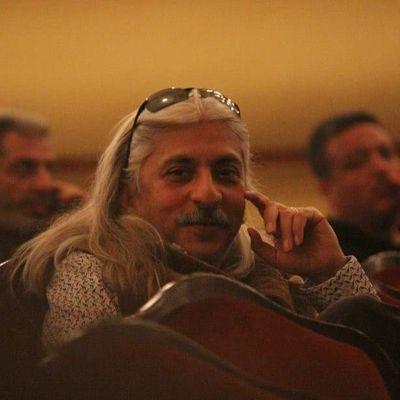Big Picture: A Moment of Reflection for Indian Publishing's Grand Stage at JLF London
The timing is more than just coincidental. Tharoor, fresh from his diplomatic outreach for the Indian government, will step into a festival that had long stood as a symbol of India's intellectual prowess. But beneath its shining panels and high-profile conversations hides an industry that is grappling with its own contradictions—an industry that has allowed power, privilege, and proximity to subvert the meritocracy that it once promised.
 |
| JLF Founder & TeamworkArts MD Sanjoy K. Roy on X |
Today, as bombs have flattened Gaza, as Tehran reels under fresh attacks, as memories remain fresh of innocent Indian travellers massacred in Pahalgam, and as Air India crash snatches away our peace of mind, we are reminded brutally of the fragility of human existence.
Literature, in its essence, transcends these lines drawn by borders, ideologies, and regimes. But the festival that once inspired young readers and writers to believe in the power of words has allowed itself to be devoured by monopolies that has been cunningly disguised as cultural patronage.
— JLF International (@JLFLitfest) June 13, 2025
Friends, family members, bureaucrats, and ministers' kin have quietly carved a niche within JLF's inner sanctum. This has left many genuine voices stifled under the weight of influence. Social media's curated applause has only strengthened this echo chamber. It has also made dissent turn into bitterness rather than necessary critique, as a matter of well-thought PR policy that is going to wreak havoc on its existence.
For those who’ve watched this unfold, the disappointment has matured into a quiet resolve. This isn’t a cry for attention, it is now about holding of the mirror. A mirror that reflects both the festival’s compromises as well as the painful personal journeys of those who tried to navigate an industry where a phone call can bury years of literary labour, where manuscripts hang in limbo while their ideas surface under another’s name, and where plagiarism, quietly condoned, infects shelves without consequence.
But, for all its institutional corrosion, the Jaipur Literature Festival is not beyond redemption. If the festival remembers the ideals that made it the voice of a generation, it might yet reclaim its soul. And in Tharoor, the festival still finds its most genuine force—unparalleled in intellect, magnetic to the youth, and untethered from the patronage that plagues others. His presence, unlike many others, is not a product of privilege but of earned excellence.
The choice before JLF is simple: continue down a road of cozy circles and temporary applause, or confront your own hypocrisies and rise again as the ethical lighthouse you once aspired to be. The world is burning outside, the festival must decide what burns within itself.
(Saket Suman is the author of The Psychology of a Patriot. Among other roles, he was a Special Correspondent at The Times of India and the head of Arts/Books/Culture verticals of what was India's largest independent newswire.)
(Views Expressed Are Author's Own and Do Not Reflect The Views of This News Outlet)
